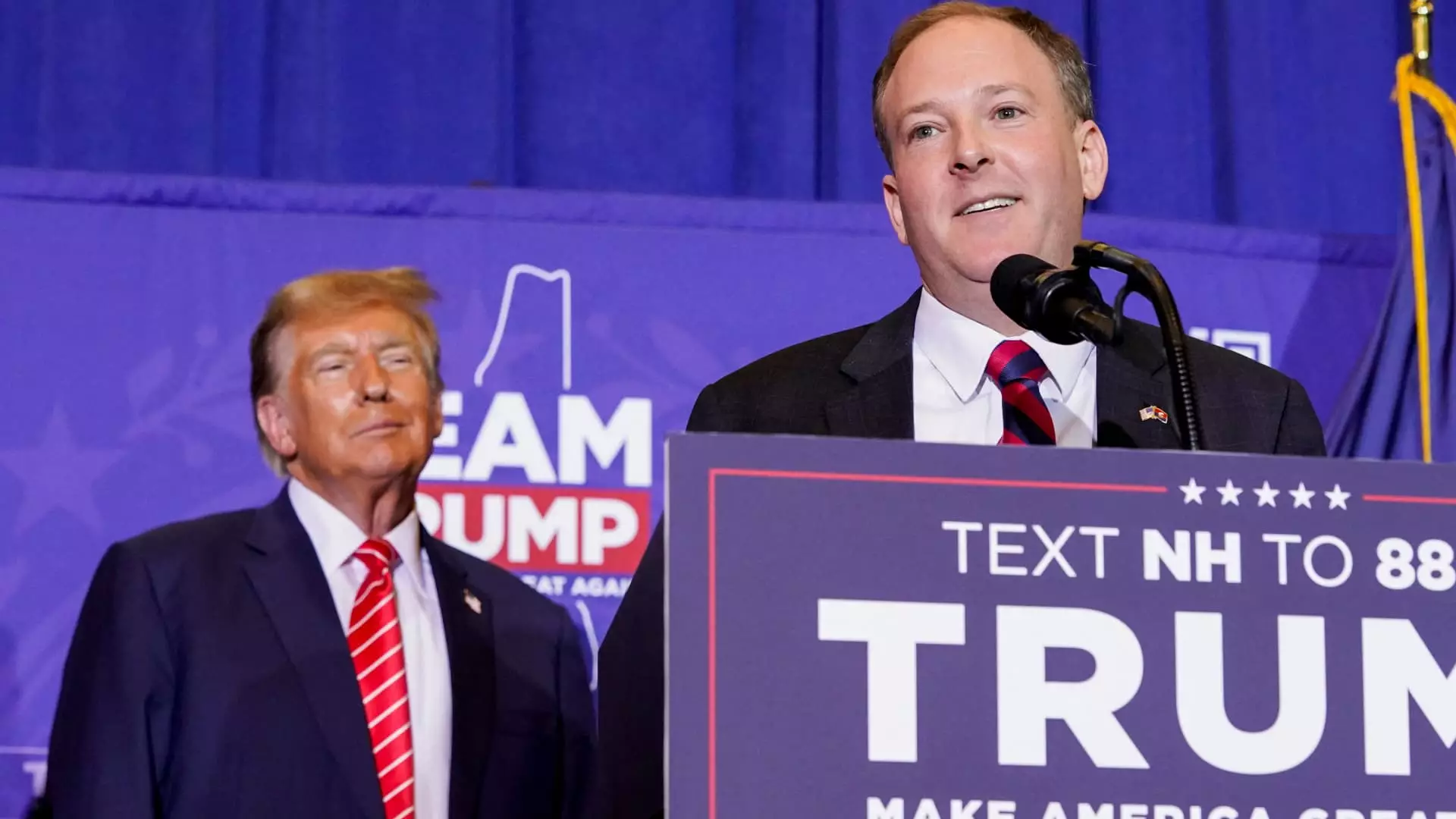The recent appointments of Lee Zeldin and Elise Stefanik by President-elect Donald Trump mark a significant moment in American political dynamics, particularly concerning environmental policy and international relations. Both selections have ignited a flurry of reactions, showcasing the potential for shifts in policy direction as well as underlying tension within the current political landscape. Zeldin’s appointment as the Environmental Protection Agency (EPA) administrator and Stefanik’s role as the U.S. Ambassador to the United Nations underscore the broader implications of Trump’s agenda and the ideological divides that accompany it.
Lee Zeldin’s nomination to lead the EPA has raised eyebrows among environmental advocates and critics alike. A former congressman for a Long Island district, Zeldin has been a proponent of deregulation, particularly in industries heavily scrutinized for environmental impacts. Trump praised him as a defender of “America First” principles, suggesting that Zeldin would focus on reducing regulations that he claims hinder economic growth. However, Zeldin’s track record concerning environmental issues is troubling for many stakeholders. With a dismal lifetime score of 14% from the League of Conservation Voters, his history has been characterized by votes deemed detrimental to environmental protection.
Critics have charged that appointing an individual with such a record to oversee the nation’s environmental policy contradicts the very mission of the EPA. Leading organizations like the Sierra Club have expressed vehement opposition, arguing that Zeldin’s leadership could fundamentally undermine efforts to combat climate change and protect natural resources. Calls from environmental groups warn of a future where corporate interests take precedence over public health and ecological stability, an outcome that could be devastating given the urgent environmental challenges currently facing the nation.
The political response to Zeldin’s EPA nomination has been starkly polarized. Supporters within the Republican Party view his deregulation stance as a necessary step to revive the economy, particularly for industries struggling under perceived governmental overreach. However, many Democrats and environmental activists see this as a blatant attempt to prioritize corporate profitability over the welfare of the planet. The polarization represents a broader ideological conflict within American politics, particularly regarding the role of government in regulating businesses and protecting the environment.
Zeldin himself has positioned his agenda as one that balances the need for economic vitality with environmental stewardship, claiming that “access to clean air and water” remains a priority for his administration’s policies. Yet, the skepticism directed towards such statements reflects a prevailing concern that economic interests could easily eclipse genuine environmental commitments.
Elise Stefanik’s selection as ambassador to the U.N. offers its own set of complexities. As a prominent member of House Republican leadership and an advocate for national security, she brings a wealth of experience in defense and intelligence matters. Trump has heralded her historic endorsement of his campaign, framing her as a steadfast ally committed to “Peace through Strength.” However, some analysts suggest her diplomatic approach may not align with traditional U.N. practices, especially in light of growing calls for multilateral engagement on pressing global issues like climate change and pandemics.
Stefanik’s move to the international stage raises questions about the potential reshaping of Republican representation in Congress, particularly if her departure creates a vacancy in the House. Given the narrow Republican majority expected to persist, the implications of such shifts could reverberate well into future policymaking, affecting the party’s strategy in an increasingly competitive legislative environment.
These appointments come amid broader national conversations about governance, agency integrity, and the role of political appointees in shaping policy outcomes. As both Zeldin and Stefanik assume their new roles, their respective philosophies will serve as a litmus test for Trump’s promises of revitalizing American industry while simultaneously addressing global challenges. The juxtaposition of economic priorities with environmental and diplomatic responsibilities encapsulates the ongoing tug-of-war in American politics, where ideological commitments often clash.
As Zeldin takes his seat at the EPA and Stefanik prepares for the U.N., the implications of their appointments will be closely monitored, not just for their immediate policy changes, but also for the long-term trajectory they might set for American governance. The fusion of interests they represent highlights a critical juncture in U.S. politics, where decisions at the highest levels will resonate well beyond the confines of their respective offices.


Leave a Reply